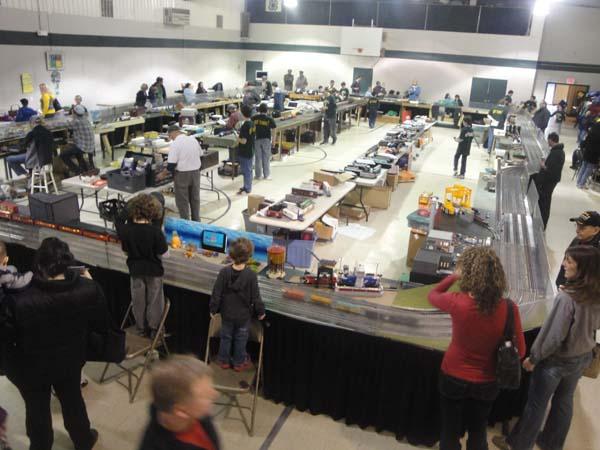
The Trainmasters’ entry describes their unique approach to train shows: “Our observation has been that the vast majority of model train clubs are run by adults. But when guests enter our display, they see our youth members running the show: controlling trains, working in the yards, fixing problems, and modifying their individual modules on the club layout. “The result is that instead of seeing something that is many years beyond their reach, families and youngsters can visualize themselves involved in this hobby at a young age. Kids speak with their peers — our Trainmaster kids. Parents and grandparents speak with the young Trainmasters, and they relate this to how their children will be able to enjoy model railroading. And they get immediate answers from both our Trainmasters and adult leaders to questions like ‘Where do I begin?’ and ‘How do I continue?’” It’s what the club does when they’re not at shows that makes this possible. Each Trainmaster goes through a five-year program that helps them learn all facets of model railroading: building a 3-rail module in year one; adding scenery in year two; painting a freight car in year three, including airbrushing and decaling; constructing a kit in year four (usually a building); and learning railroad operations in year five, while adding a siding or passing track to their module. In 2012, the Trainmasters’ 13th year of operation, their 30’ x 56’ modular layout was displayed to nearly 70,000 people at the Somerset County 4-H Fair in Bridgewater, NJ and other train shows. Thirty-four Trainmasters from ages 10-18 participated in the program; the club has a waiting list for the 5-6 new members it is able to accept each year. As Doug Pitney, one of the Trainmasters’ eight adult leaders, notes, “In keeping with the whole 4-H experience, our ultimate goal is to help our kids develop self-confidence, in whatever venue works for them. With our members, the venue happens to be model railroading. Beyond the skills needed to build and operate a layout, they’re learning to talk and interact with their peers, adults, and the public at large — skills that will help them in whatever they do.” Back to Blue Comet Award Winners
